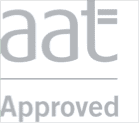

A common misconception around playing devil’s advocate is that this role is solely focused on finding the negatives or reasons why something won’t succeed. Of course, there are those that have personality traits who enjoy an element of confrontation or debate, but I think we should focus on the positives surrounding this role and the beneficial impact it can have not only to a business but also for your career.
I’m sure you’ll already appreciate that sometimes, the beginning of any new project or assignment can feel daunting and overwhelming when you think about it as a whole. You can see the ultimate goal but where you start and how you reach a successful outcome can seem insurmountable. Of course, everybody wants things to run smoothly and have a positive outcome. But, we all know that collaborating with multiple team members, with ideas being pitched from varying angles with different agendas and ways of working can naturally lead to opposing views; disagreements can emerge that really test the fabric of human nature.
So, how can you make sure your voice is heard, even when others may not want to hear it? How can you deliver your input without coming across as negative? As an employer myself, I value all of my team members’ opinions. I know that speaking up to offer an opposing or different view might not be the most natural thing to everyone, but I really believe there is a lot to be gained by taking on the role of devil’s advocate, especially when the success and reputation of the business is at stake. Personally, I find it an asset in people, it builds my trust and confidence. I love positivity and ‘can do’ willingness, but I also need to know my team have considered things from every angle and that can only come from people analysing and considering different viewpoints and outcomes. It has to be about balance.
If you’re working as a EA or PA you will more than likely already assume this role to an extent due to the nature of your position, but now might be the ideal time to really hone in on those abilities and step up to be more of an authority figure on project teams. Some find it difficult to voice their views in front of a group of people, especially if you work in a hierarchical environment. What you have to remember is that it’s good to step out of the comfort zone every now and then. You could find it greatly benefits your career.
Showcase and enhance your critical thinking skills
The devil’s advocate role necessitates the ability to be able to reflect, evaluate, and look at things with an open mind, from multiple angles – all of which plays perfectly to your existing strengths, so it’s quite a natural fit for a PA Courses or EA to play this part. Taking a more visible, challenging approach to projects or tasks will strengthen your abilities and demonstrate leadership skills by helping others think about things in a different way.
The devil is in the detail
Your role already requires you to have exceptional detail-oriented capabilities. Looking at a project or task in great detail to analyse or foresee potential hurdles means you get to know it inside and out. You almost carve out a niche expertise in it. When questions arise you can answer with certainty and authority, as you’ll be one of the most qualified people to do so.
Build your value
Acting as the ‘challenger’ can help to illuminate the passion you have for your job. It demonstrates that you have the company’s best interests at heart, building trust and showcasing loyalty. Proving your worth to the company in this way can only be a good thing. It also gives you tangible examples of your achievements – useful not only for your CV but also if you want to push for a promotion or pay rise! Remember, being in the position of devil’s advocate doesn’t mean you’re a negative person, you’re being proactive and constructive, offering feedback that the rest of the team can work on.
Improves the self
A large part in playing this role relies on your ability to communicate clearly and concisely. You’ll become accustomed to initiating discussions in a well-considered, practical way. Learning how to avoid conflict is the ideal when working amongst different personalities. Encouraging and creating an open forum gives everyone a foundation to discuss freely and without judgement.
Not only will you be constantly improving key communication abilities, you’ll be unknowingly improving a huge list of soft skills that are invaluable within the working environment – listening, assertiveness, logical thinking, and persuasion techniques to name just a few. Collaborating with different personalities will become intuitive, making you a valuable asset to any organisation.
Obviously this isn’t a full-time role itself but if you find yourself in a situation where you can add value by playing devil’s advocate, I’d really encourage you to go for it and embrace the opportunity. The benefits far outweigh any negatives in my view. You’re not forming a ‘Business Prevention Team’, you’ll be helping to shape the business and avoid potential pitfalls. Here are a few pointers for how you could take on this new approach:
- Be professional, not personal:
It is imperative that you look at things from a professional viewpoint first and foremost. Remove personal feelings, personality clashes and personal likes and dislikes – this process is about offering valuable, constructive input for the good of all. - Pick your battles:
Think about when to raise concerns and how they will best be heard. If it’s a minor point that has little impact on the outcome, is it worth spending time on? If you know your point has value and could stop issues cropping up further down the line, raise it at the next meeting or have an informal chat with a manager or colleague, but definitely speak up. - Be constructive:
Avoid closed statements such as “I don’t think that’ll work”. Wherever possible provide reasoning, offer a solution or ask for help to find a solution. If you’re not sure how to get your input across to others, take your time, think about exactly what you want to say and how you’ll get your point across. Remember to be concise in your concern, if you go around the houses people will switch off and move on to the next item. - Ask pertinent questions:
If you’re not comfortable raising outright opposition to an idea or project, you could take more of a gentle approach and lead others to see things from a similar point of view through clever questioning. - Listen intently:
Before interjecting, ensure that you have listened to everyone’s plans thoroughly. Paying careful attention will mean you make justified and reasonable input to the group that is backed up with thought and fact, cementing the success of the project. - Once is enough:
Once you’ve provided your input to the situation, move on. Don’t become obsessed or dwell. As long as you know you’ve been heard, whether it’s taken into consideration or dismissed, you’ve contributed. There’s no point trying to flog a dead horse! - Be persistent:
This opposes the point above but for good reason! As much as you can’t let yourself get bogged down by feedback not being acted on, if you truly believe there’s a major flaw or pitfall ahead that could compromise the success of a project, and it’s not being heard, try speaking to another member of the team on a one-to-one basis. It can be a hard to go against the grain within a group environment so a smaller, more informal setting may help gain their attention. If you’re still finding it difficult, chat to a colleague to ask for their advice on how you can broach this. I would hope that ultimately, if you’re helping to divert a potential disaster, you will be thanked! - Be sceptical, but also enthusiastic:
Yes, the aim of devil’s advocate is to look for the potential flaws in a plan or argument, but it’s with good reason. You want success, progress and development. You’re not there to hinder. Listen with an open mind, analyse from every angle and picture every scenario. If you foresee issues, don’t let it stop the momentum of the task at hand, discuss alternative solutions, offer advice or potential amendments. Don’t forget to publically acknowledge peoples positive contributions every now and then.
The positives and benefits of this role are never-ending! Treat the position of devil’s advocate as a privilege when appropriate. It proves that you’re a capable, trustworthy and valued member of the team. You can use this to your own advantage in terms of your career!
This article first appeared in Executive Secretary Magazine, a global training publication and must read for any administrative professional. You can get a 30% discount when you subscribe through us. Visit the website at www.executivesecretary.com to find out more or to get your 30% discount email lbrazier@executivesecretary.com and tell them we sent you.


















